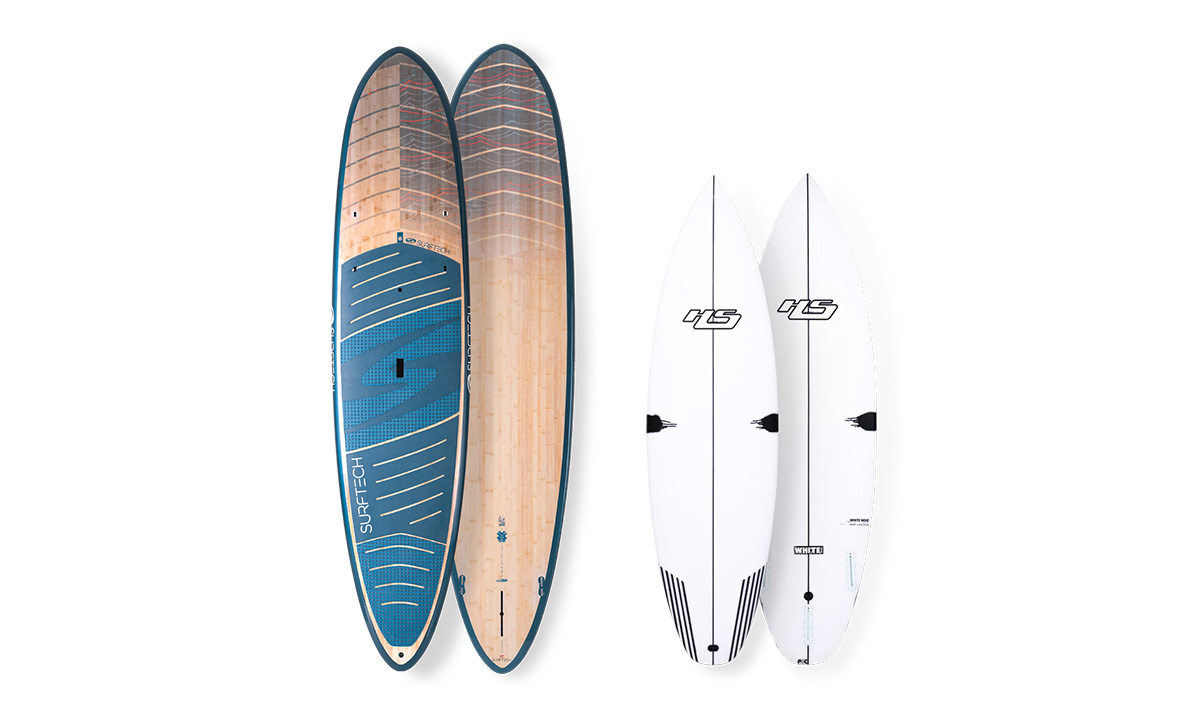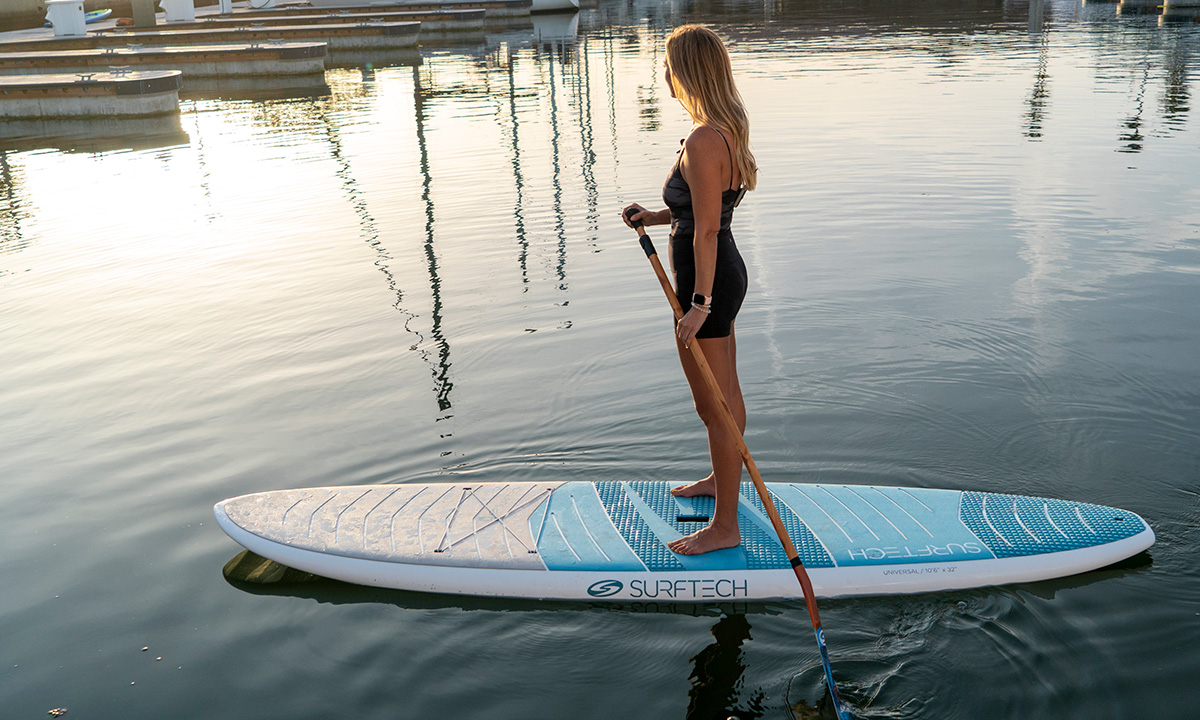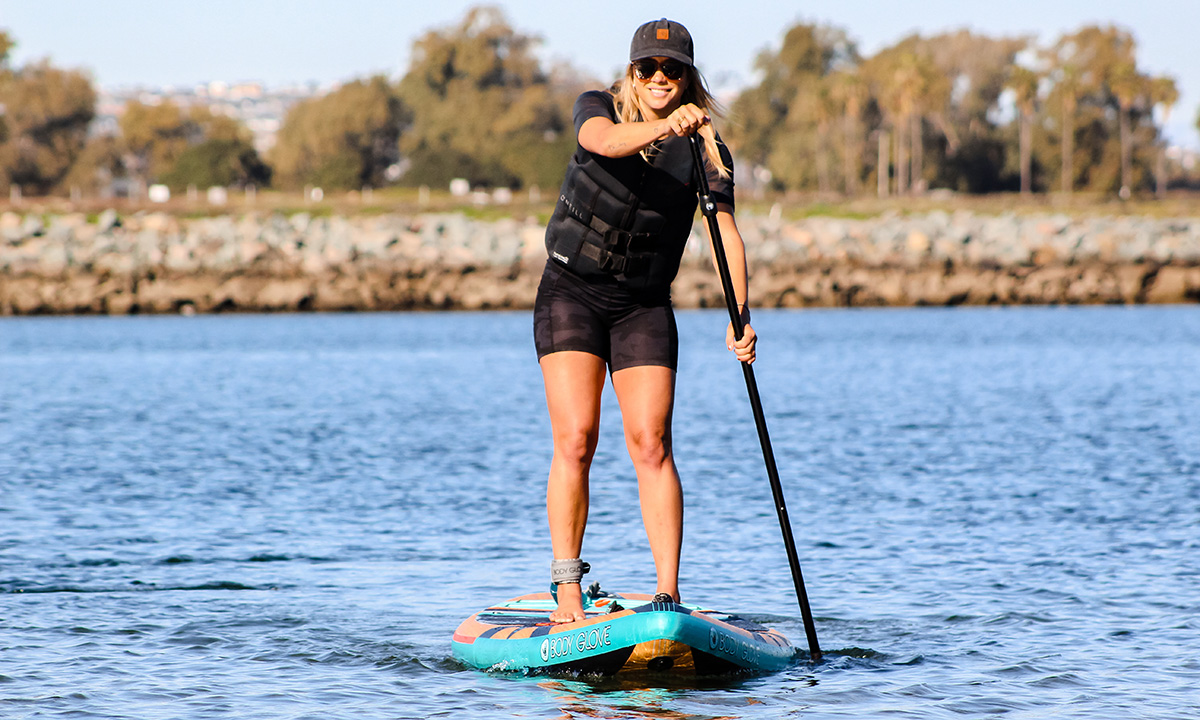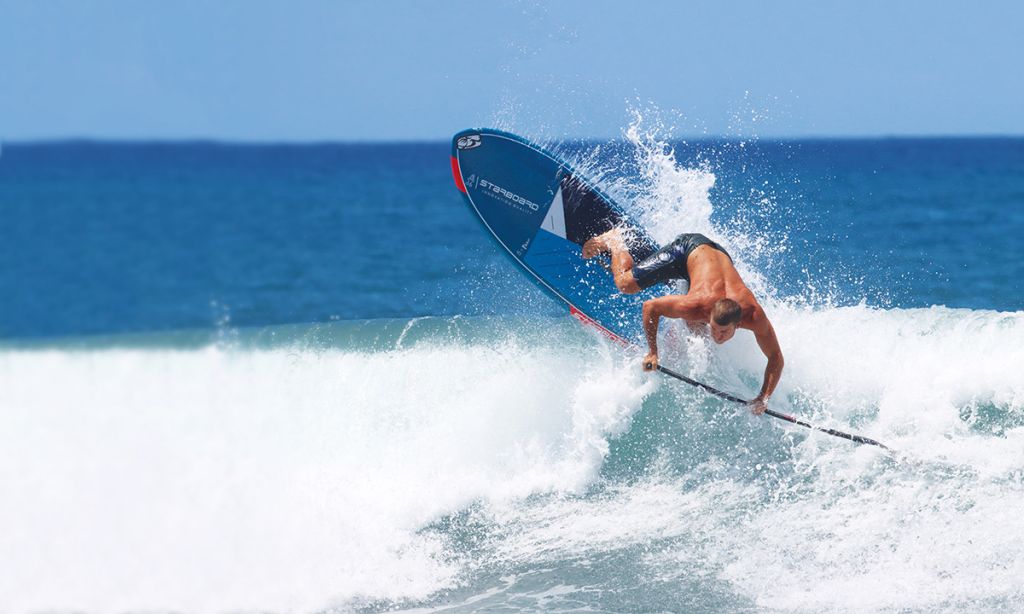SUP Board vs. Surfboard: What's the Difference?
- Written by Staff
- Published in Gear
- Comments::DISQUS_COMMENTS
If you're a beginner in the world of water activities, choosing between SUP boards and surfboards can be overwhelming. Although they may look similar at first glance, there are some key differences between these two types of boards. Here's an overview of the main differences to help you make the right choice.
Shape and size of a SUP board and surf board
The shape and size of a SUP (standup paddle) board and surfboard are very different. A SUP board is typically wider, thicker and longer than a surfboard. This makes it more stable and easier to balance on, which is why it's a popular choice for beginners. A surfboard, on the other hand, is designed to be more maneuverable and responsive, with a narrower and thinner shape that allows the rider to carve turns and ride waves.
 Left: SUP / Right: Surfboard
Left: SUP / Right: Surfboard
Paddling technique
Another major difference between a SUP board and surfboard is the way you paddle. When paddling on a SUP board, you stand upright and use a long paddle to propel yourself forward. This allows you to cover longer distances and explore different parts of the waterway. When surfing on a surfboard, you lay down on the board and use your arms to paddle, which helps you catch waves and ride them towards the shore.
Activity on both boards
The activity you want to do on the board will also affect your choice. A SUP board is great for exploring, touring, and doing yoga or fitness exercises. It can also be used for surfing smaller waves. A surfboard is designed specifically for riding waves and is not suitable for other activities.
 Photo courtesy: Surftech
Photo courtesy: Surftech
Difference in skill level
Both SUP and surfing require different skill levels. While anyone can learn how to paddle on a SUP board, it may take some practice to master the techniques needed to catch waves on a surfboard. However, with the right training and practice, anyone can become proficient at either sport.
Environment
The environment in which you plan to use the board can also affect your choice. SUP boards are more versatile and can be used in calm lakes, rivers, and oceans, as well as in small waves. Surfboards are designed specifically for riding waves and are best used in more challenging ocean conditions.
Equipment
The equipment required for SUP and surfing is also different. In addition to the board, a SUP boarder needs a paddle and appropriate clothing for the water temperature. Surfers need a wetsuit, leash, and wax for the board. While both sports require some initial investment in equipment, there are different costs associated with each. If you're looking to purchase some SUP gear our friends at Watersports4Fun have plenty of gear to get a good start when you get on your SUP board.
 Photo: Supconnect
Photo: Supconnect
By considering these factors, you can make an informed decision about whether a SUP board or surfboard is right for you. Whether you're looking for a relaxing paddle, a challenging surf session, or a combination of both, there's a board out there that will meet your needs.
For more SUP Tips click HERE.

Staff
Submit your news, events, and all SUP info, so we can keep promoting and driving the great lifestyle of stand up paddling, building its community, and introducing people to healthier living.
Website: supconnect.com





